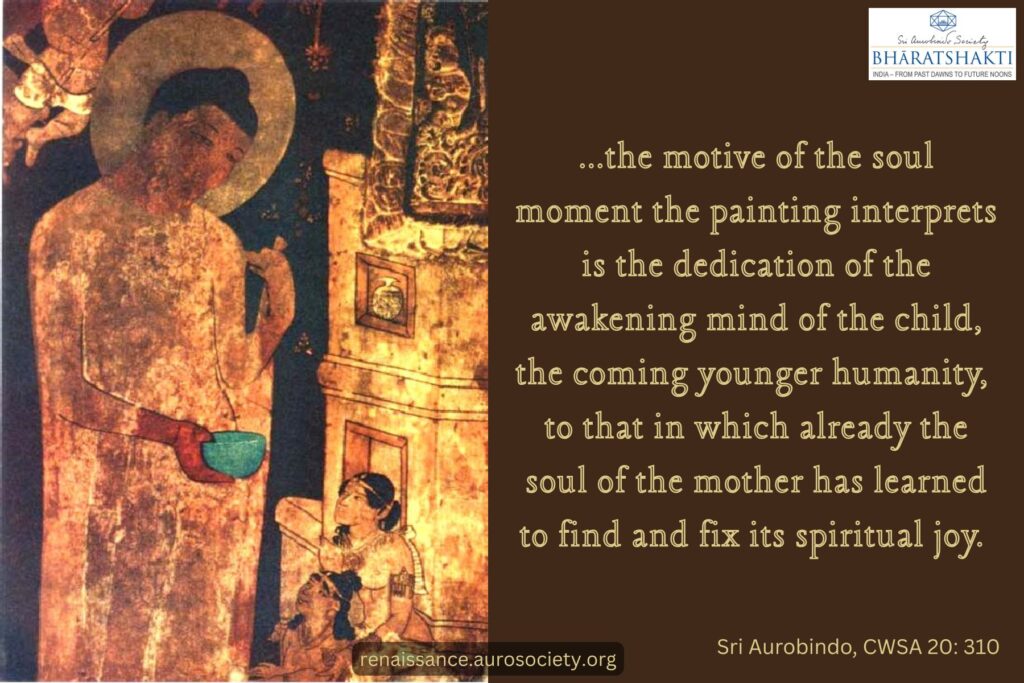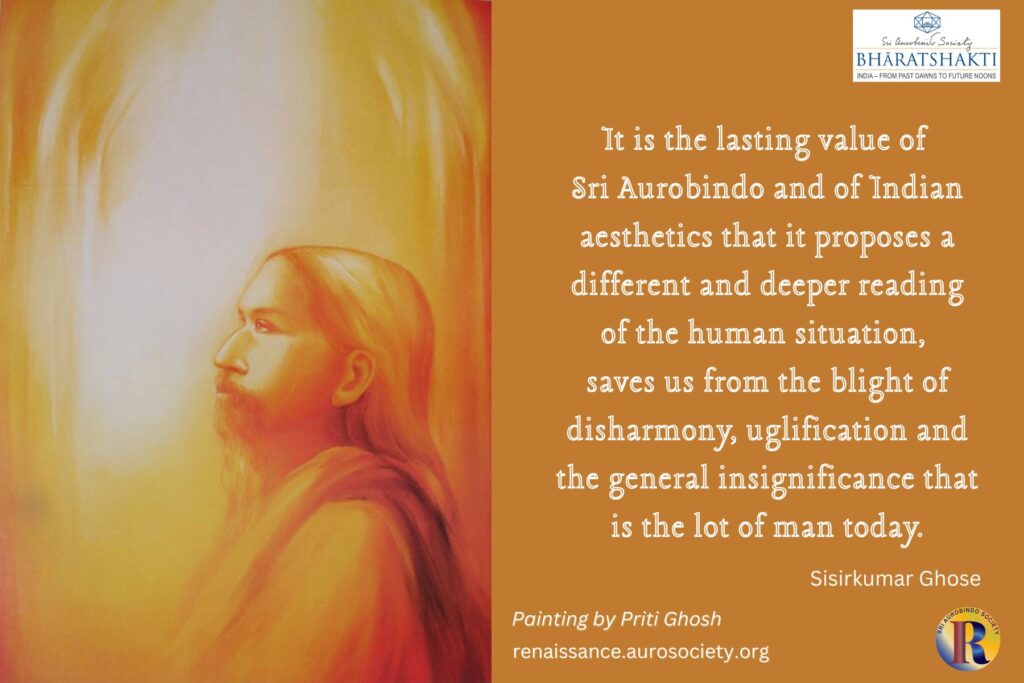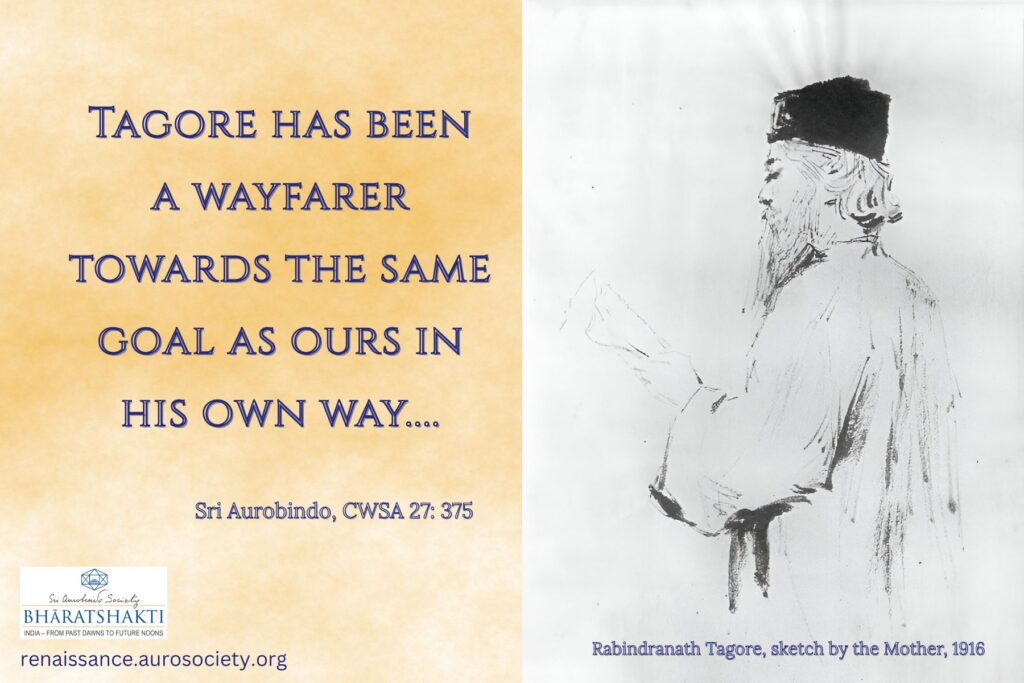Editor’s Note: We present here the Mother’s responses to a few practical questions from the students regarding concentration. Whether one is trying to find solutions to mathematical problems, or is doing any scientific or artistic work, the final outcome always depends on one’s degree of concentration. The Mother also reminds that if one has both concentration and will, one can become a genius and nothing will obstruct one’s progress.
We conclude this feature with the Mother’s recollection of her younger days which she uses to guide a student on how concentrating on one’s work helps one overcome anxiety.
🌸🌸🌸
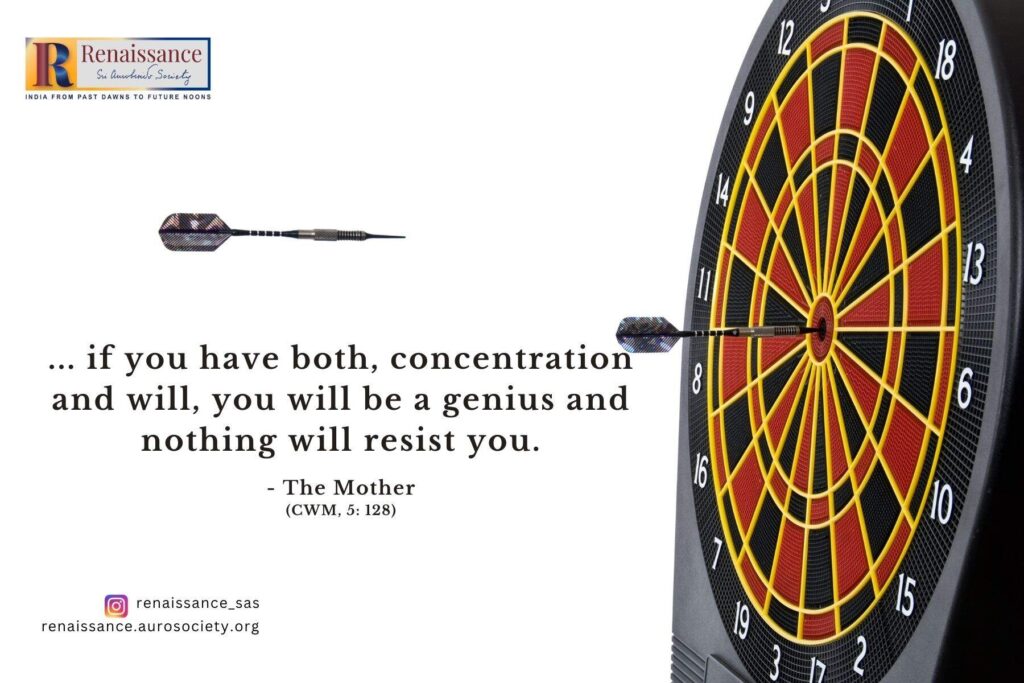
Gather together all your mental energies
Question: For a mathematical problem, sometimes the solution comes quickly, sometimes it takes too long.
The Mother: Yes, it is exactly that: it depends on the degree of concentration. If you observe yourself, you will notice this quite well: when it does not come, it is because of a kind of haziness in the brain, something cloudy, like a fog somewhere, and then you are there as in a dream. You push forward trying to find it, and it is as though you were pushing into cotton-wool, you do not see clearly there; and so nothing comes. You may remain in that state for hours.
Concentration consists precisely in removing the cloud.
You gather together all the elements of your intelligence and fix them on one point, and then you do not even try actively to find the thing. All that you do is to concentrate in such a way as to see only the problem—but seeing not only its surface, seeing it in its depth, what it conceals.
If you are able to gather together all your mental energies, bringing them to a point which is fixed on the enunciation of the problem, and you stay there, fixed, as though you were about to drill a hole in the wall, all of a sudden it will come. And this is the only way. If you try: Is it this, is it that, is it this, is it that?… You will never find anything or else you will need hours.
You must get your mental forces to a point with strength enough to pierce through the words and strike upon the thing that is behind. There is a thing to be found find it.
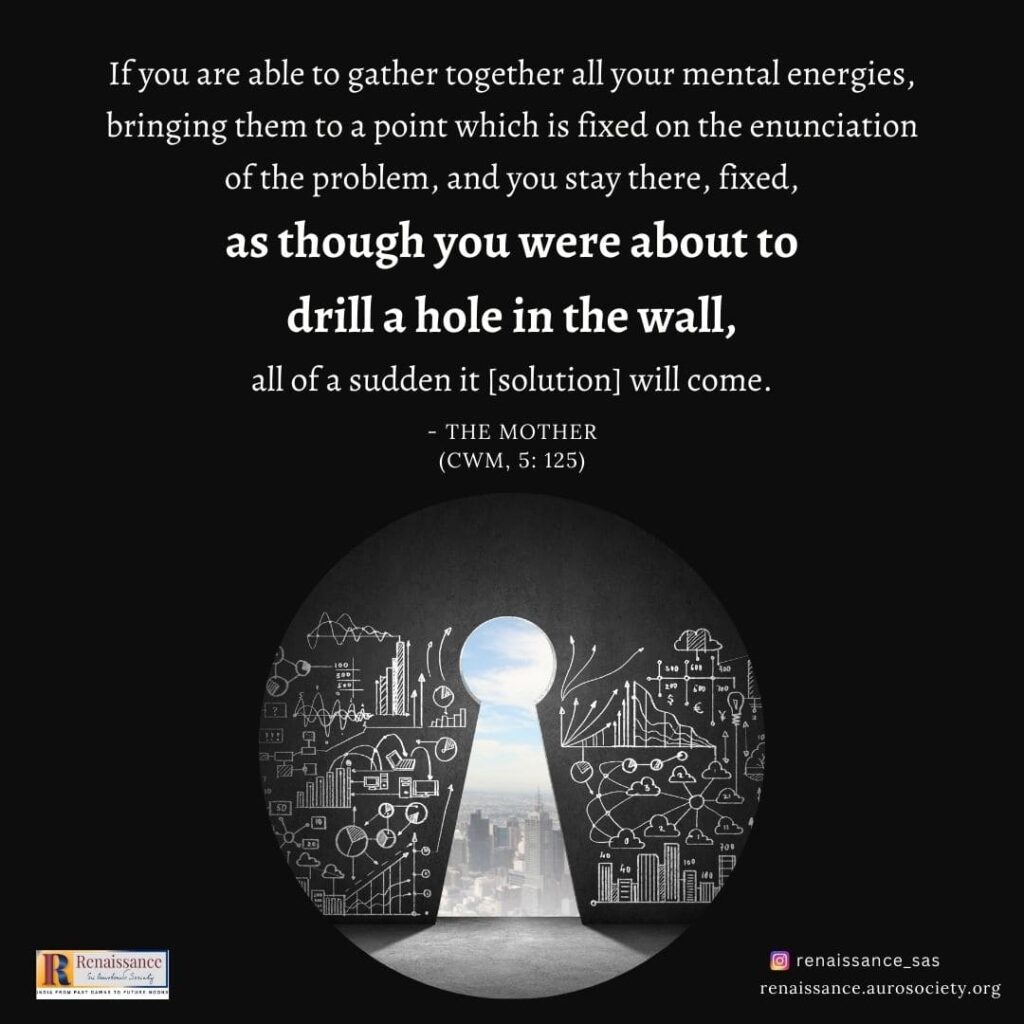
And it is always the days you are a little hazy that it becomes difficult. You are hazy: as though there is something you seem to catch and which escapes you.
Naturally, if it is materially impossible—you do not have to deal with monsters! I believe your teachers are reasonable enough and if you go to them and say, “Well, I could not do it, I had no time, I did what I could, I did not have the time”, they won’t scold you, I don’t think so. But here ninety-nine times out of a hundred, it is a kind of half-inertia of the mind which makes you think that you have too much work.
If you observe yourself, you will find out that there is always something which pulls this way, something which pulls that way and then this kind of haziness as though you were living in cotton-wool, in the clouds: nothing is clear.
Work organises the cerebral capacity
The usefulness of work is nothing else but that: to crystallise this mental power.
For, what you learn (unless you put it in practice by some work or deeper studies), half of what you learn, at least, will vanish, disappear with time. But it will leave behind one thing: the capacity of crystallising your thought, making something clear out of it, something precise, exact and organised. And that is the true usefulness of work: to organise your cerebral capacity.
If you remain in your hazy movement in that kind of cloudy fluidity, you may labour for years, it will be quite useless to you; you will not come out of it more intelligent than when you entered it. But if you are able, even for half an hour, to concentrate your attention on things that seem to you of very little interest, like a rule of grammar, for example. . ., if you take one of them and try to understand it—not learn it by heart and apply mechanically what you have learnt by heart, that will be of no use—but try to understand the thought behind the words: “Why was this rule formulated in this way?” and try to find out your own formula for the thing; that is so interesting.
“Why has this gentleman who wrote this rule written it in this way? But I am studying, trying to understand why. Why has he put this word after that and that word after that other, and why has he stated the rule in this way? It is because he thought that it was the most complete and the most clear way of expressing the thing.” And so that’s the thing you must find. And when you find it, you suddenly exclaim: “That is what it means! It must be seen in this way, then it becomes very clear.”
I am going to explain it to you: when you have understood, it forms a little crystal in you, like a little shining point. And when you have put in many, many, many of these, then you will begin to be intelligent. That is the utility of work, not simply to stuff the head with a heap of things that take you nowhere.
Read more by the Mother
On Concentration, Interest and Attention
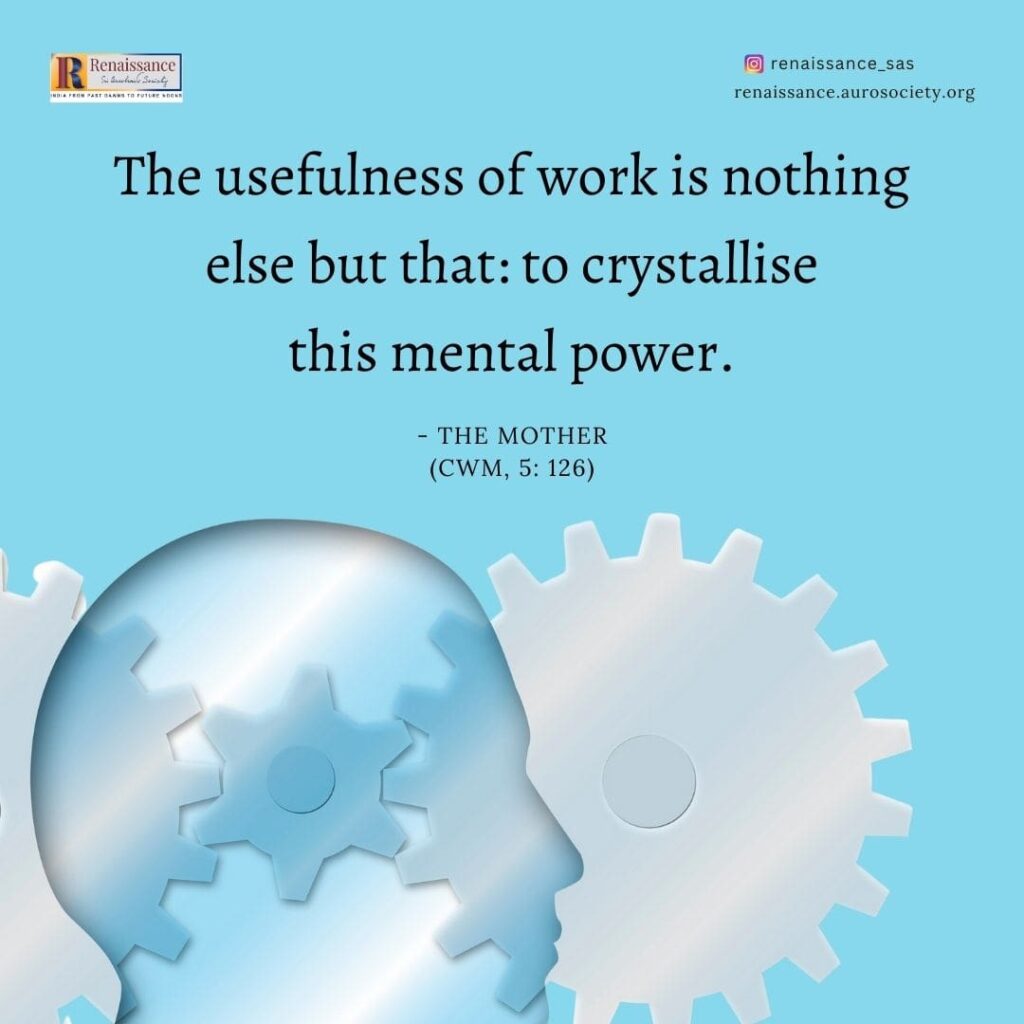
Same power of concentration needed for scientific and artistic work
Question: How is it that in people occupied with scientific studies artistic imagination is lacking? Are these two things opposed to each other?
The Mother: Not necessarily.
Question: In general?
The Mother: They do not belong to the same domain. It is exactly as though you had what is called “a torchlight”, a small beacon-light in your head at the place of observation. Scientists who want to do a certain work turn the beacon in a particular way, they always put it there and the beacon remains thus: they turn it towards matter, towards the details of matter.
But people with imagination turn it upward, because up above there is everything, you know, all inspirations of artistic and literary things: this comes from another domain. It comes from a much more subtle domain, much less material. So these turn upward and want to receive the light from above. But it is the same instrument. The others turn it downwards, and it is just a lack of gymnastic skill.
It is the same instrument. It is the same power of a luminous ray upon something. But as one has made it a habit of concentrating it in a certain direction, one is no longer supple, one loses the habit of doing things otherwise.
But you can at any time do both the things. When you are doing science, you turn it in one direction and when you do literature and art, you turn it in the other direction; but it is the same instrument: all depends on the orientation.
If you have concentration, you can move this power of concentration from one place to another and in every way it will be effective. If you are occupied with science, you use it in a scientific way, and if you want to do art, you use it in an artistic way. But it is the same instrument and it is the same power of concentration.
It is simply because people do not know this that they limit themselves. So the hinges get rusty, they do not turn any more. Otherwise, if one keeps the habit of turning them, they continue to turn.
Moreover, even from the ordinary point of view, it is not rare to find a scientist having as his hobby some artistic occupation—and the reverse also. It is because they have found that the one was not harmful to the other and that it was the same faculty which could be utilised in both.
Essentially, from the general point of view, particularly from the intellectual viewpoint, the most important thing is the capacity of attention and concentration, it is that which one must work at and develop.
From the point of view of action (physical action), it is the will: you must work and build up an unshakable will. From the intellectual point of view, you must work and build up a power of concentration which nothing can shake. And if you have both, concentration and will, you will be a genius and nothing will resist you.
– The Mother (CWM, Vol. 5, pp. 125-128)
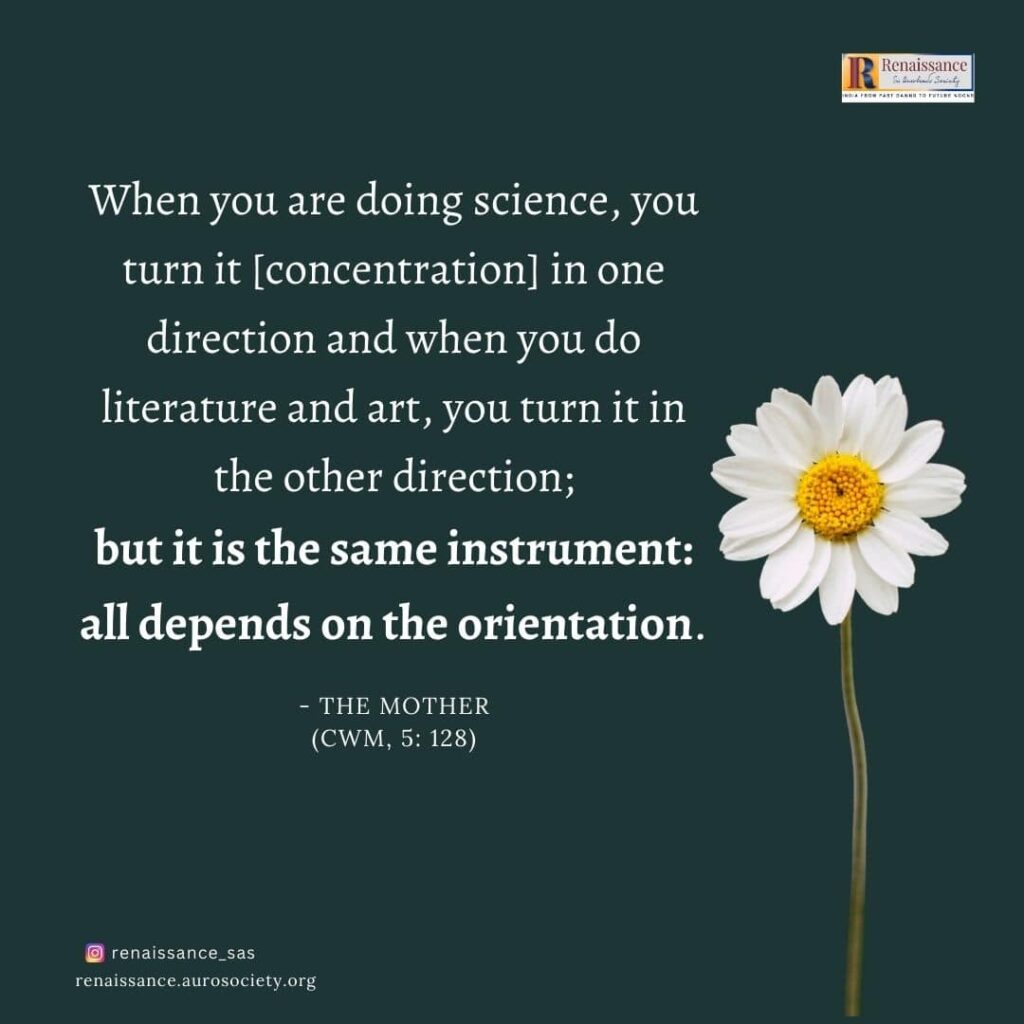
Also Read:
Meditation and Concentration
Concentrate on your work to overcome anxiety
You see, my child, the unfortunate thing is that you are too preoccupied with yourself. At your age I was exclusively occupied with my studies—finding things out, learning, understanding, knowing. That was my interest, even my passion. My mother, who loved us very much—my brother and myself—never allowed us to be ill tempered or discontented or lazy. If we went to complain to her about one thing or another, to tell her that we were discontented, she would make fun of us or scold us and say, “What is this nonsense? Don’t be ridiculous. Quick! Off you go and work, and never mind whether you are in a good or a bad mood! That is of no interest at all.”
My mother was perfectly right and I have always been very grateful to her for having taught me the discipline and the necessity of self-forgetfulness through concentration on what one is doing.
I have told you this because the anxiety you speak of comes from the fact that you are far too concerned about yourself. It would be better for you to pay more attention to what you are doing and to do it well (painting or music), to develop your mind, which is still very uncultivated, and to learn the elements of knowledge which are indispensable to a man if he does not want to be ignorant and uncultured.
If you worked regularly eight to nine hours a day, you would be hungry and you would eat well, you would feel sleepy and sleep peacefully, and you would have no time to wonder whether you are in a good or a bad mood.
– The Mother (CWM, Vol. 16, p. 121)
🌸🌸🌸
~ Design: Raamkumar

